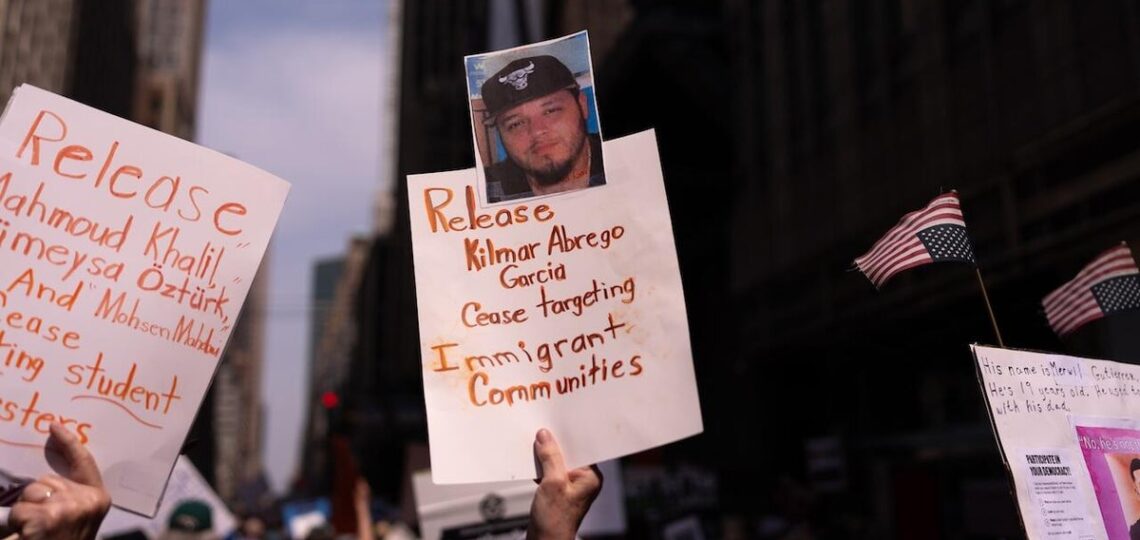
Judge orders tranche of documents in Kilmar Abrego Garcia case to be made public
Washington — The federal judge overseeing the case of Kilmar Abrego Garcia ordered a batch of documents to be unsealed Wednesday in response to a request from a media coalition that includes CBS News.
U.S. District Judge Paula Xinis said seven records must be be made available on the public docket for Abrego Garcia’s case, though one of the documents contains redactions. She also said the transcript from an April 30 hearing will be partially unsealed and include redactions that aim to protect potentially classified information or other sensitive material.
Xinis’ order was in response to a request to unseal court records made by more than a dozen news organizations, including CBS News. The judge found that the media outlets “rightly contend that, at common law, the public enjoys a presumptive right to access court records, overcome only when outweighed by competing interests.”
The Justice Department opposed the request to make the records public on two grounds: the filings in question are discovery materials that are typically not available to the press and the public; and keeping the documents sealed is needed to protect national security and prevent sensitive information from being disseminated.
As to those arguments, Xinis said “neither withstand scrutiny.”
One batch of three documents had been available to the public but were then sealed following an April hearing. Another record is a three-page Justice Department request to pause for one week the court’s order to turn over certain information about efforts to facilitate Abrego Garcia’s release from Salvadoran custody.
The document that contains redactions is from Abrego Garcia’s lawyers and urged the judge to maintain the original deadlines for information to be produced.
The final records made public are a brief, one-sentence notice and additional request from the Justice Department for Xinis to pause proceedings to avoid interfering with efforts to “resolve this litigation.”
Abrego Garcia is a Salvadoran immigrant who had been living in Maryland since he arrived in the U.S. illegally in 2011. He was arrested in March and deported to El Salvador, where he was initially held in the notorious maximum-security Terrorism Confinement Center, known as CECOT, with a group of more than 230 men, mostly Venezuelans, accused of being gang members. The State Department said in April that Abrego Garica had been moved to a lower-security facility in Santa Ana.
But the Trump administration has acknowledged that Abrego Garcia’s deportation to El Salvador was a mistake, as he had been granted a legal status in 2019 known as withholding of removal that forbade the Department of Homeland Security from removing him to his home country of El Salvador because he was likely to face persecution by local gangs.
The Trump administration has claimed Abrego Garcia is a member of the gang MS-13, citing an allegation from a confidential informant and the clothes he was wearing when he was arrested in 2019, after which he was released from custody. His lawyers have denied Abrego Garcia has any ties to MS-13, and said he has never been charged or convicted of a crime in the U.S. or El Salvador.
The Trump administration is seeking to dismiss Abrego Garcia’s case.